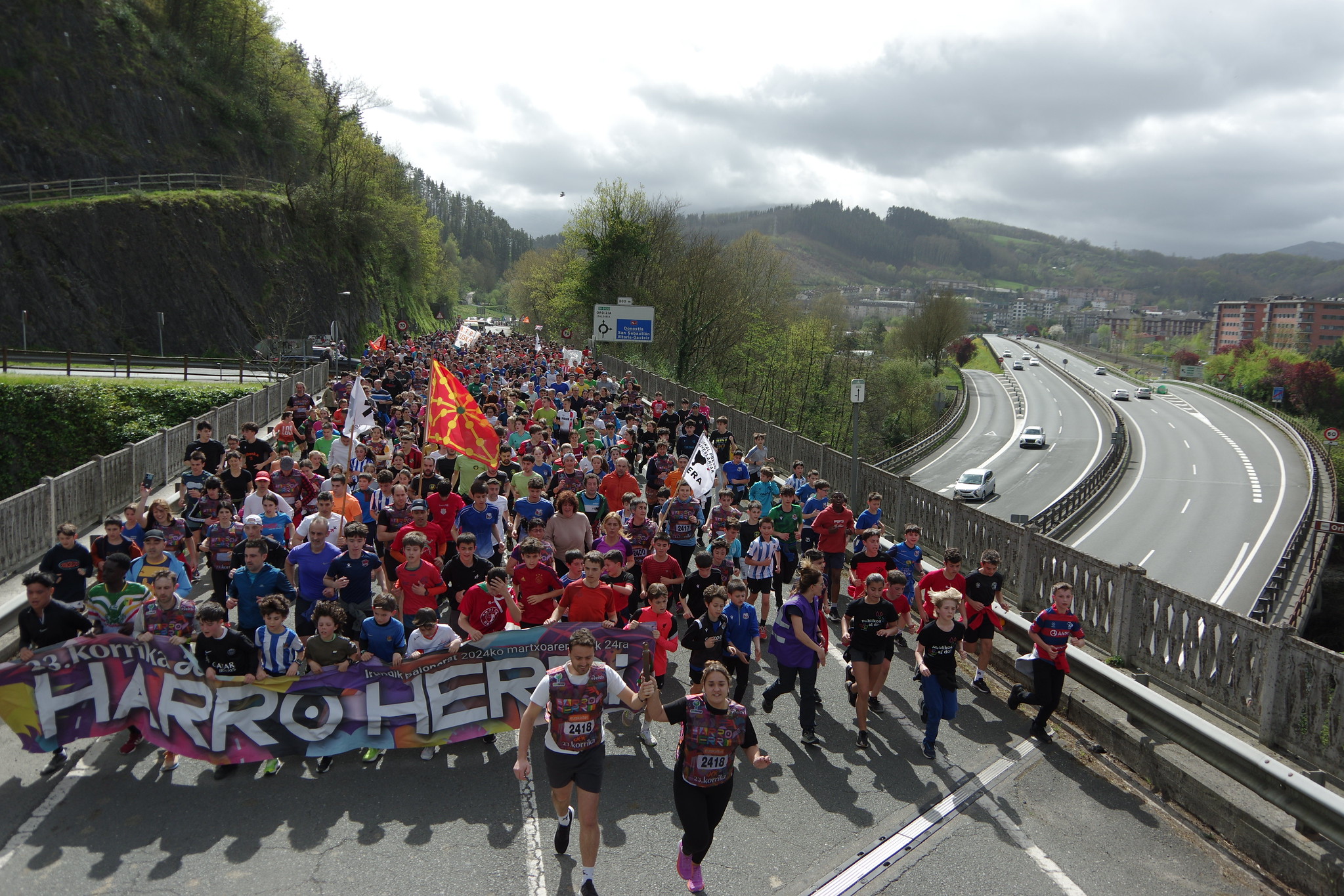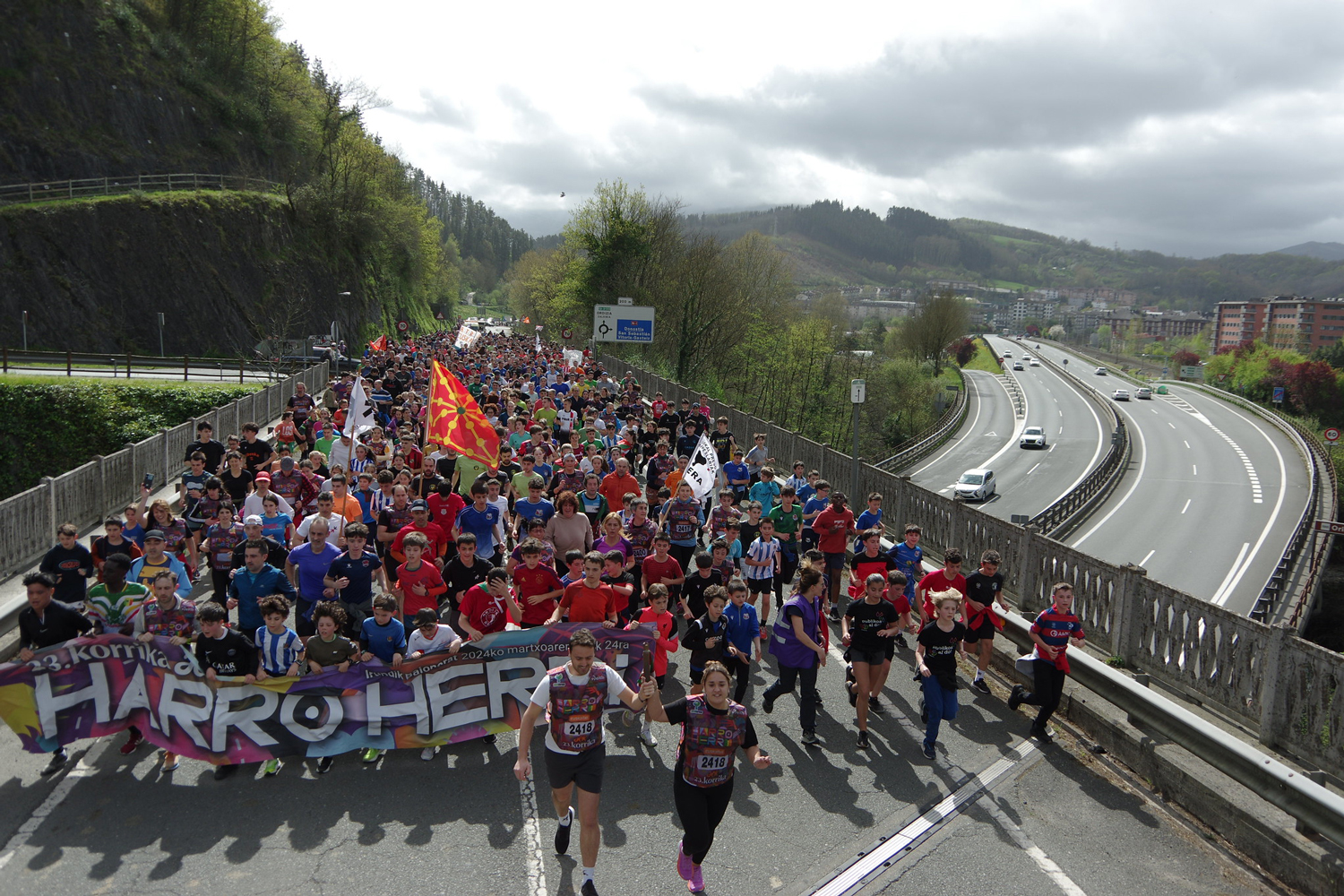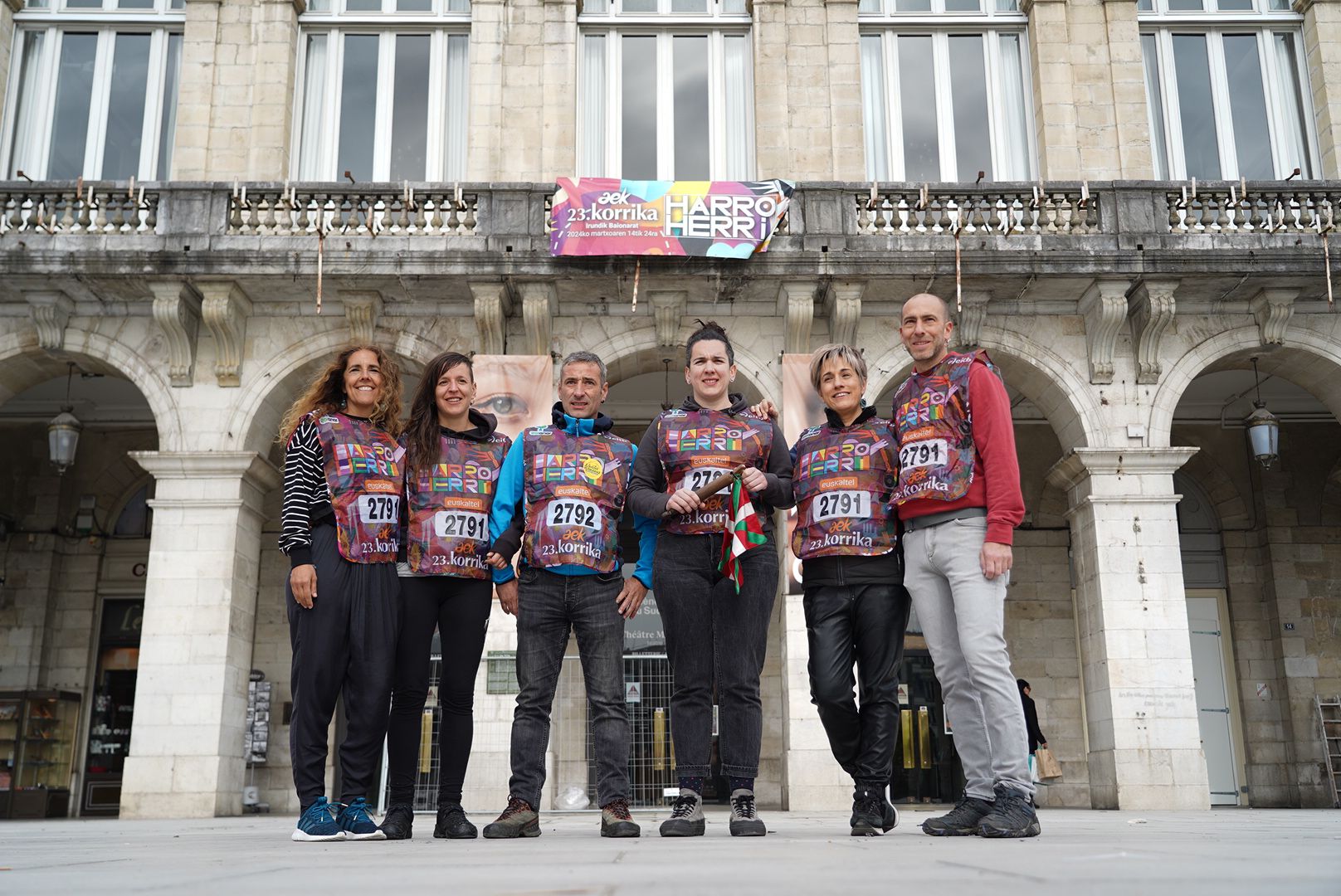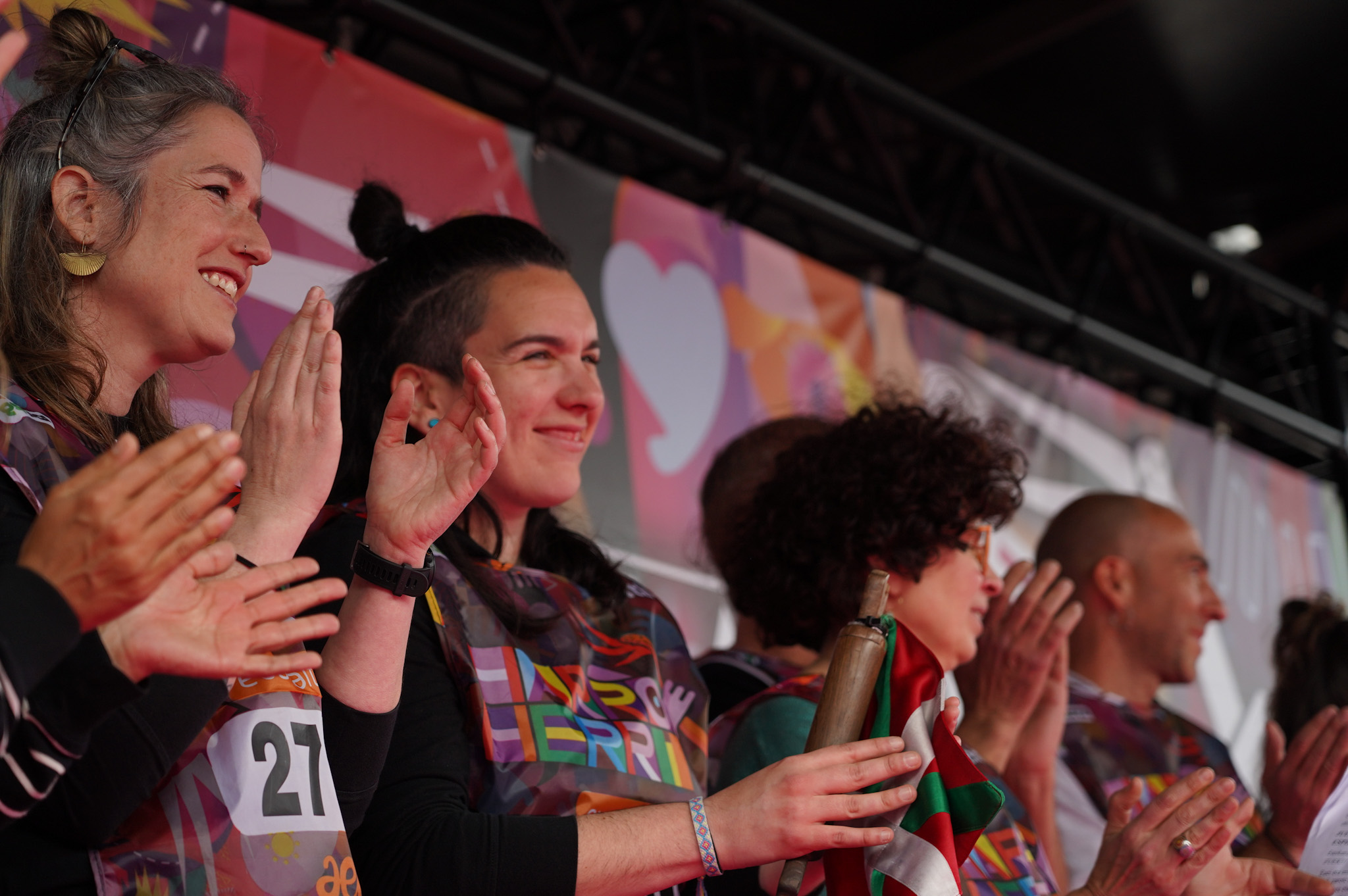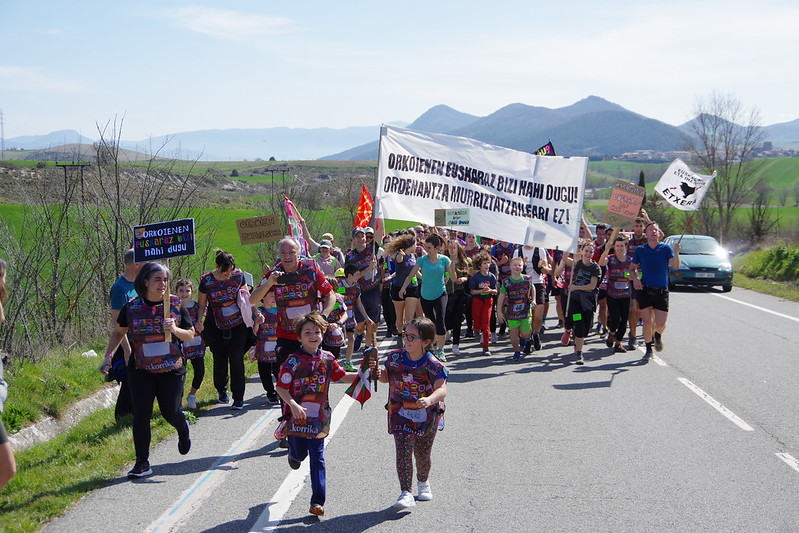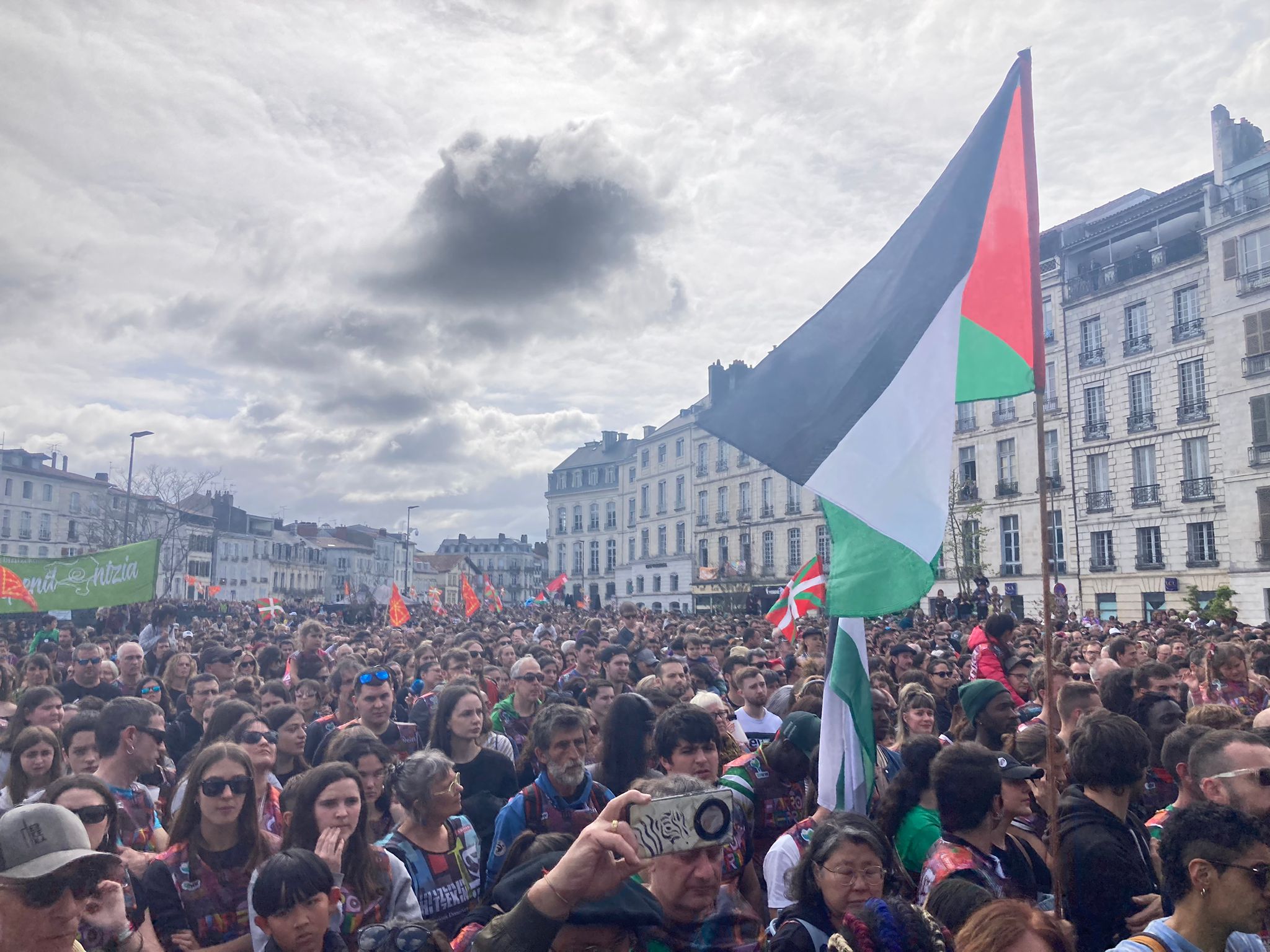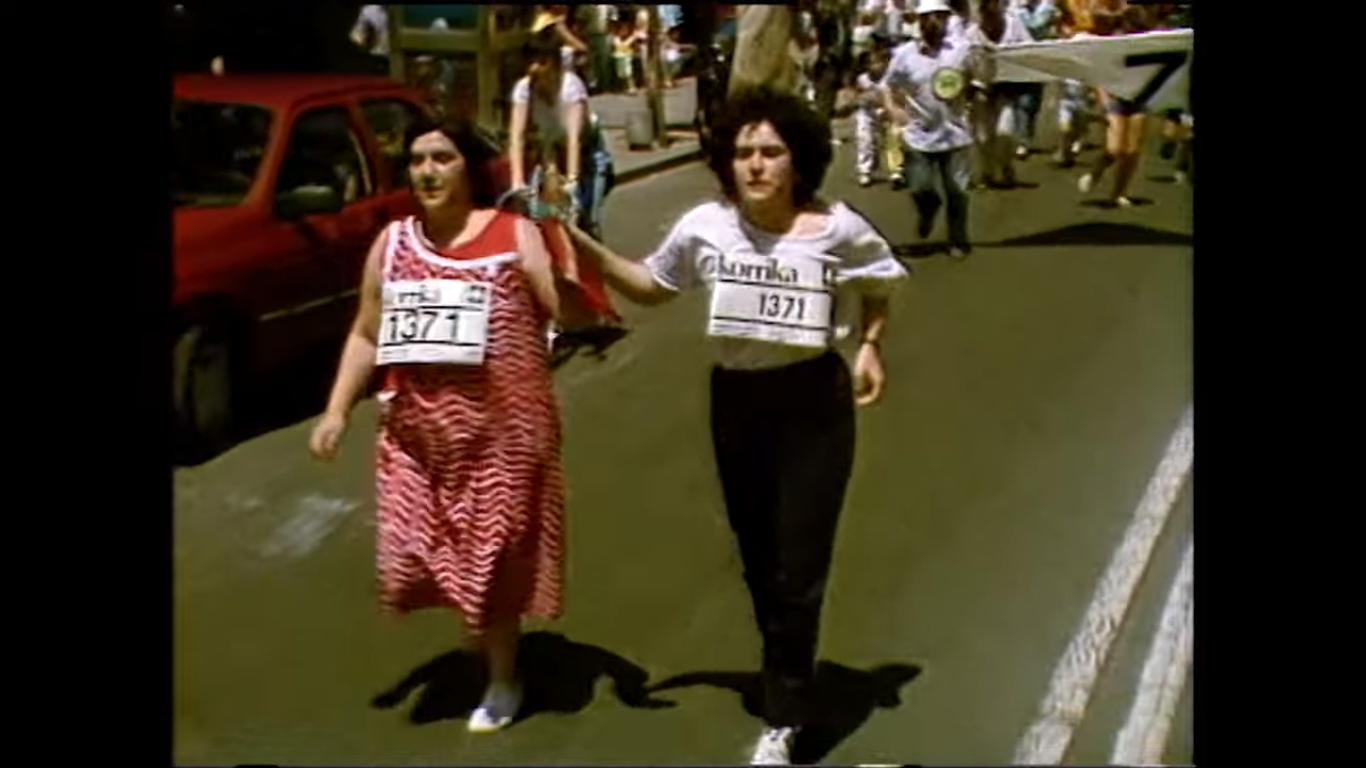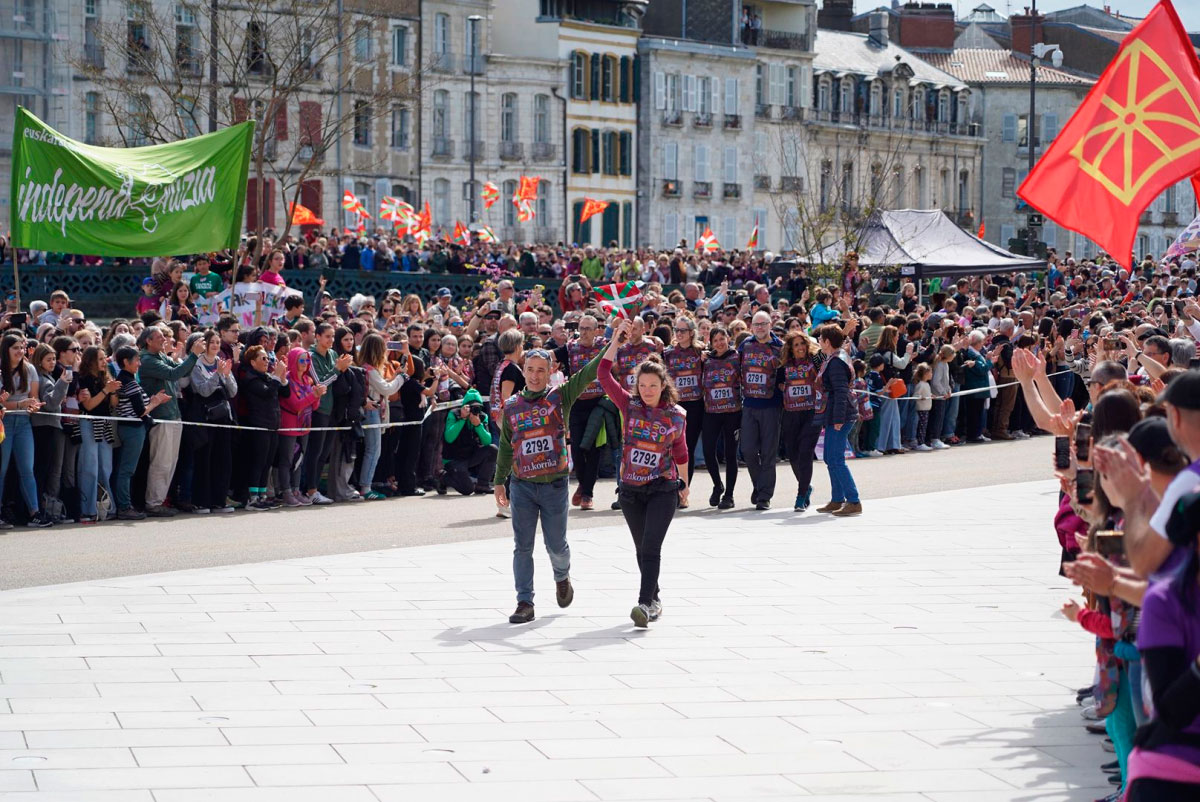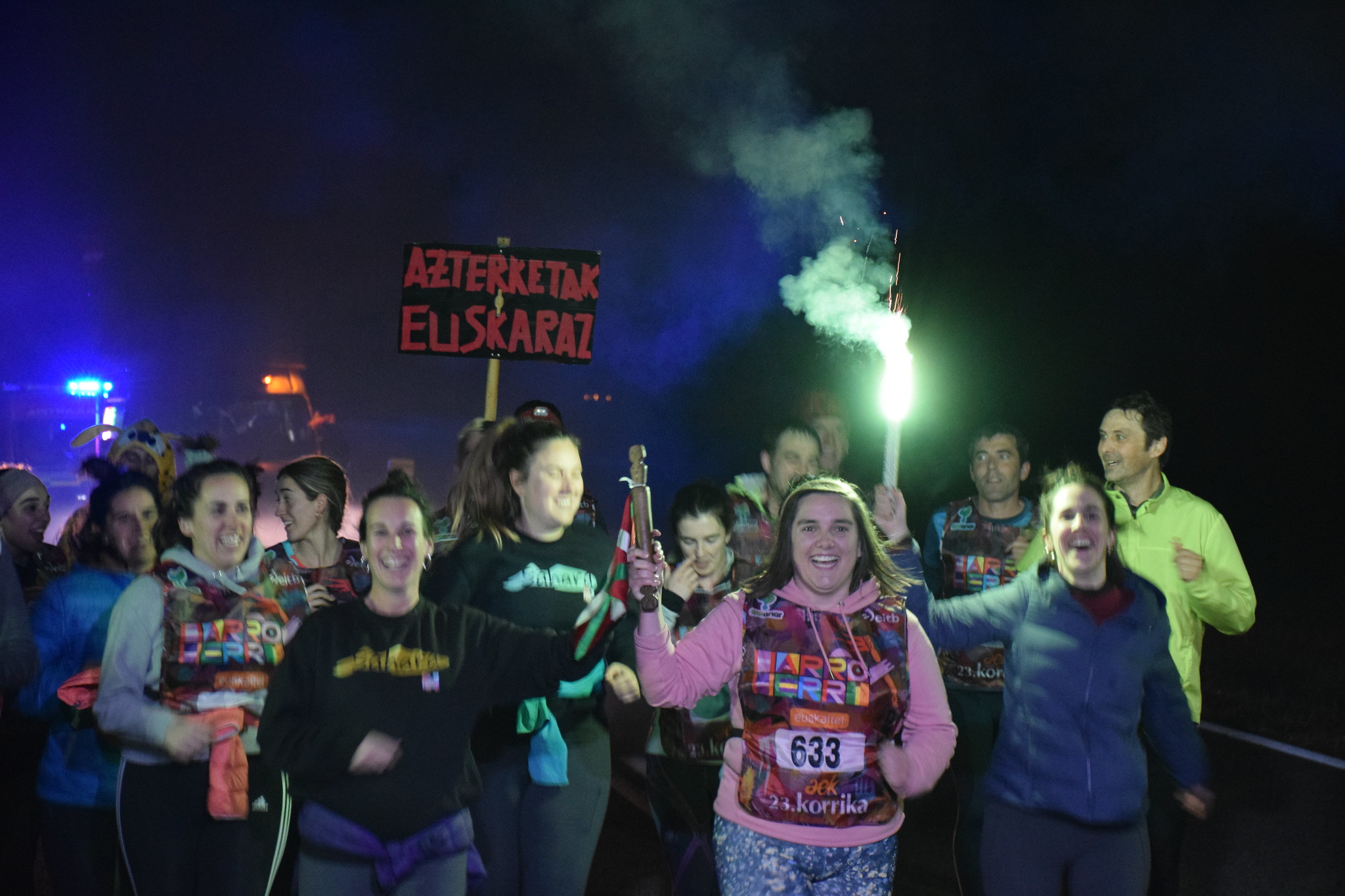Euskaltzales needed to breathe with words.
- No one has forced us to run for snow, cold or night. Let no one force us to speak in Basque, to write in Basque. Otherwise. But we chose, like participating in the Korrika, to try to live in Basque. Because the Basque needs the Euskaltzales, and the Basque needs it, among others, AEK, AEK, as AEK needs Korrika.
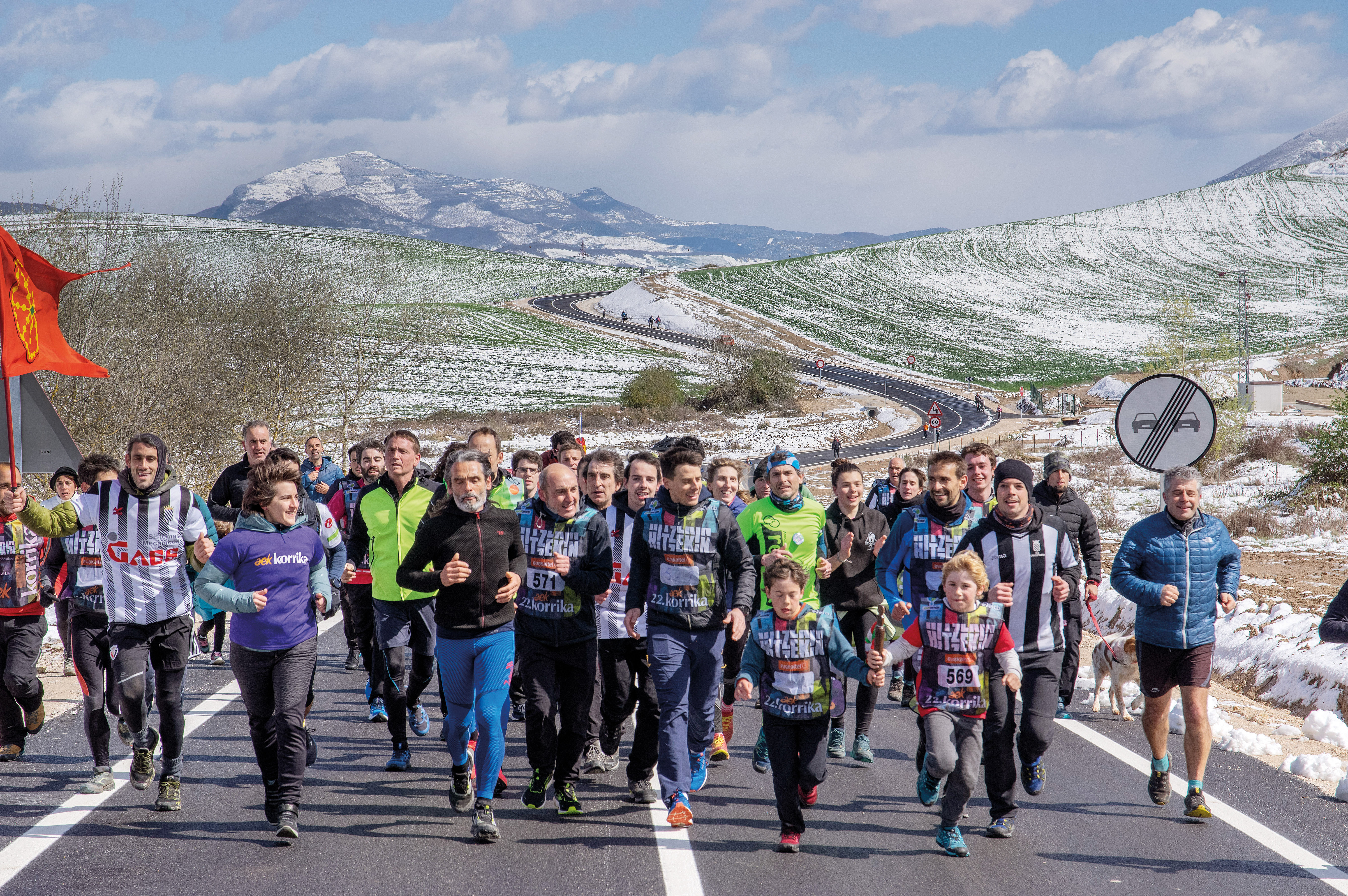
22. Korrika has given the Basque people the strength that was lacking lately, throughout the Basque Country. It's allowed us to fill the streets. In the end, we've breathed the community's breath. Joy.
Karmele Jaio stressed in her message that Korrika has the ability to turn language into something physical. Those of us who have been in the Korrika for eleven days have seen the Basque in thousands of bodies. From the van we have seen a thousand faces, in Spanish or in Basque, pushing the Basque.
Inside the van we have seen the enormous work done by eleven people for fourteen consecutive hours and eleven others for the next fourteen hours. A group of 22 people, 22 bodies and desire, always in action, always collaborating. These 22 Basque nationalities have been 22. Korrika motor. Thanks to these 22 people and those who have been looking after their back, the witness has arrived from Amurrio to Donostia over 2,000 kilometres away. These friends have been directly responsible for transmitting so much happiness from people to people.
Eleven other people in the communication team have followed the day to day and we have told in the Basque media what we have seen day to day in and out. We have said that the Korrika has moved about one million people, we have said that we welcome this popular initiative, we have told how people have been moved. And we know that, as we got excited, a lot of friends who have followed the route every day as if it were a television show have been excited. It's been a long time since the Korrika ended that I didn't know what to put on TV. They say it has been the Korrika most followed by all time.
However, those of us who went to the van have not counted everything. We have not talked about how many languages we have heard in the most Basque peoples; we have not shown how little we have heard in the most Castilian speaking peoples; we have not told the discomfort caused by Korrika to some, its hatred of the Basque people; we have not put everything on the table, because it is difficult to explain some things in words.
But Korrika is more than that. Probably the best face of a village. A unique opportunity for those who work in the neighborhoods, towns, Euskaldunization of the Basque Country, in a festive atmosphere, to influence the surroundings. Before and after reaching the peoples of the race, the Korrika is maintained, both through Korrika Txiki and cultural Korrika, people organize many volunteer and militant activities. Grains of sand for the empowerment of Basques.
This year’s motto was with words. Call to jump from words to deeds. On the ARGIA website we have had the opportunity to know the experiences of some people who have done so. For the Basque is not difficult, but will, as Jaio has pointed out. AEK has mobilized the citizens and has moved the interiors again. “That serves to charge batteries,” emphasizes an Basque who has seen a lot of young people running in Maule. “But download those batteries in the next two years, because we have to use them,” he adds.
We do not know whether the Basque Country will remember 22. Korrika as a resurrection after a pandemic, as a giant and strong impulse. But that has been the case. 22. That people, faces, feelings and songs of the Korrika remain for a long time as the end of a time when the popular initiative has been modest. And don't forget that there's always someone ready to Hitz Ekintza ...
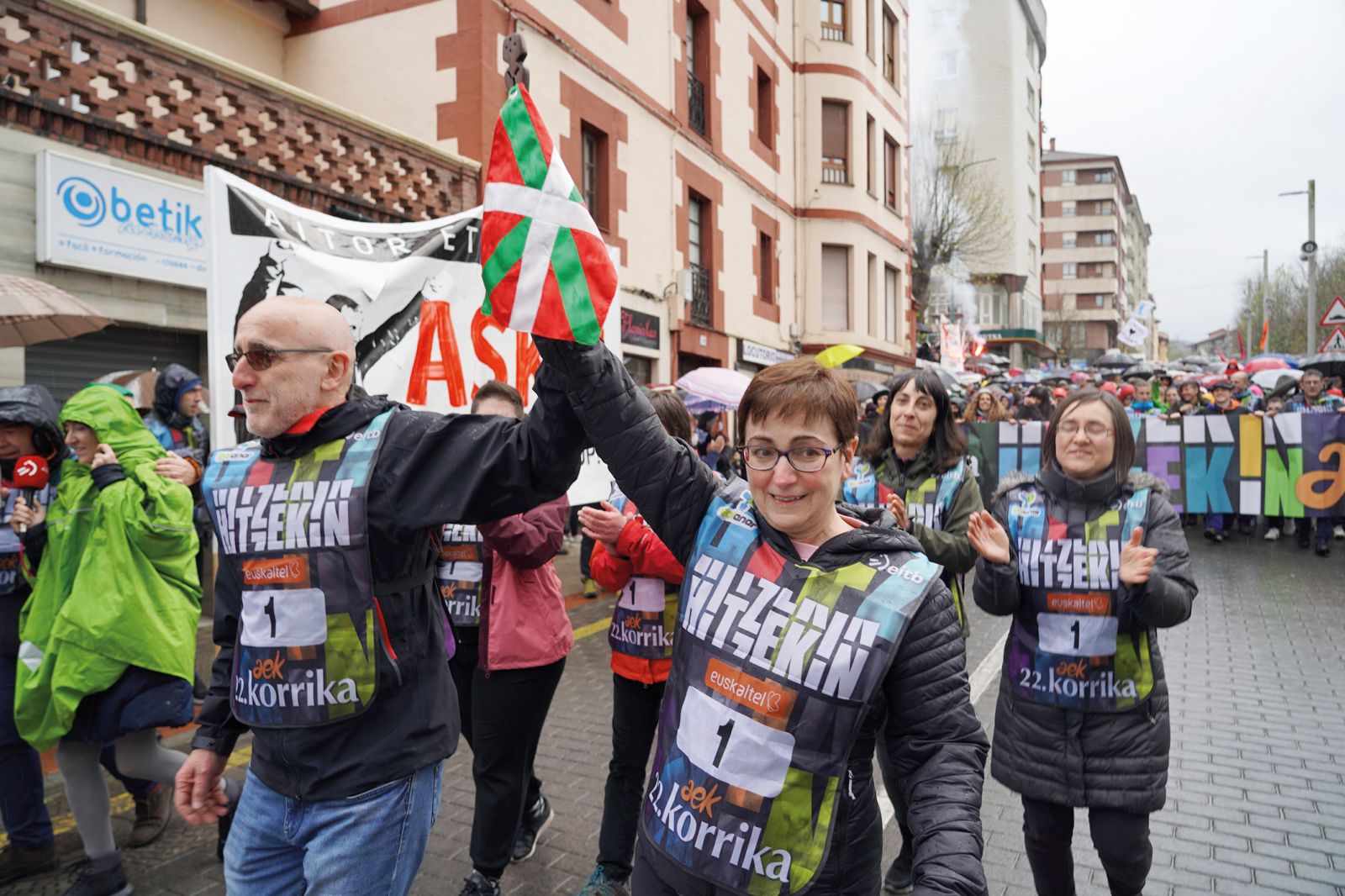
.jpg)
.jpg)
.jpg)
.jpg)
.jpg)
.jpg)
.jpg)
.jpg)

.jpg)
.jpg)
.jpg)
.jpg)
.jpg)
.jpg)
.jpg)

.jpg)
Korrikaren "bihotza eta burua" erakutsiko ditu dokumentalak. Proiektua gauzatzeko, herritarren babesa "ezinbestekoa" izango dela adierazi dute AEK eta Mirokutana ekoiztetxeak, eta apirilaren 25era bitartean crowdfunding kanpaina bat abiatuko dute jalgihadi.eus... [+]
We Basques move our feet behind the witness of Korrika to proclaim that we want to survive as a Basque people in favor of our language, with the aim of the Basque Country we desire.
The tipi-tapa is the first step taken by a migrant person who leaves his homeland in Africa,... [+]
Not more than a year living in Vitoria when I first saw Korrika. It was daylight, I was carrying my daughter in a backpack, and a bunch of speakers around me, and among those friends, Rosa, who is still beside me. About her daughter, what to say, is almost 14 years old, and in... [+]
For eleven days, from 14 to 24 March, the corners of Euskal Herria will run 23 March. Running. Photographs sent by AEK are being collected in this gallery.









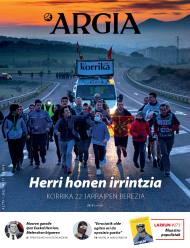

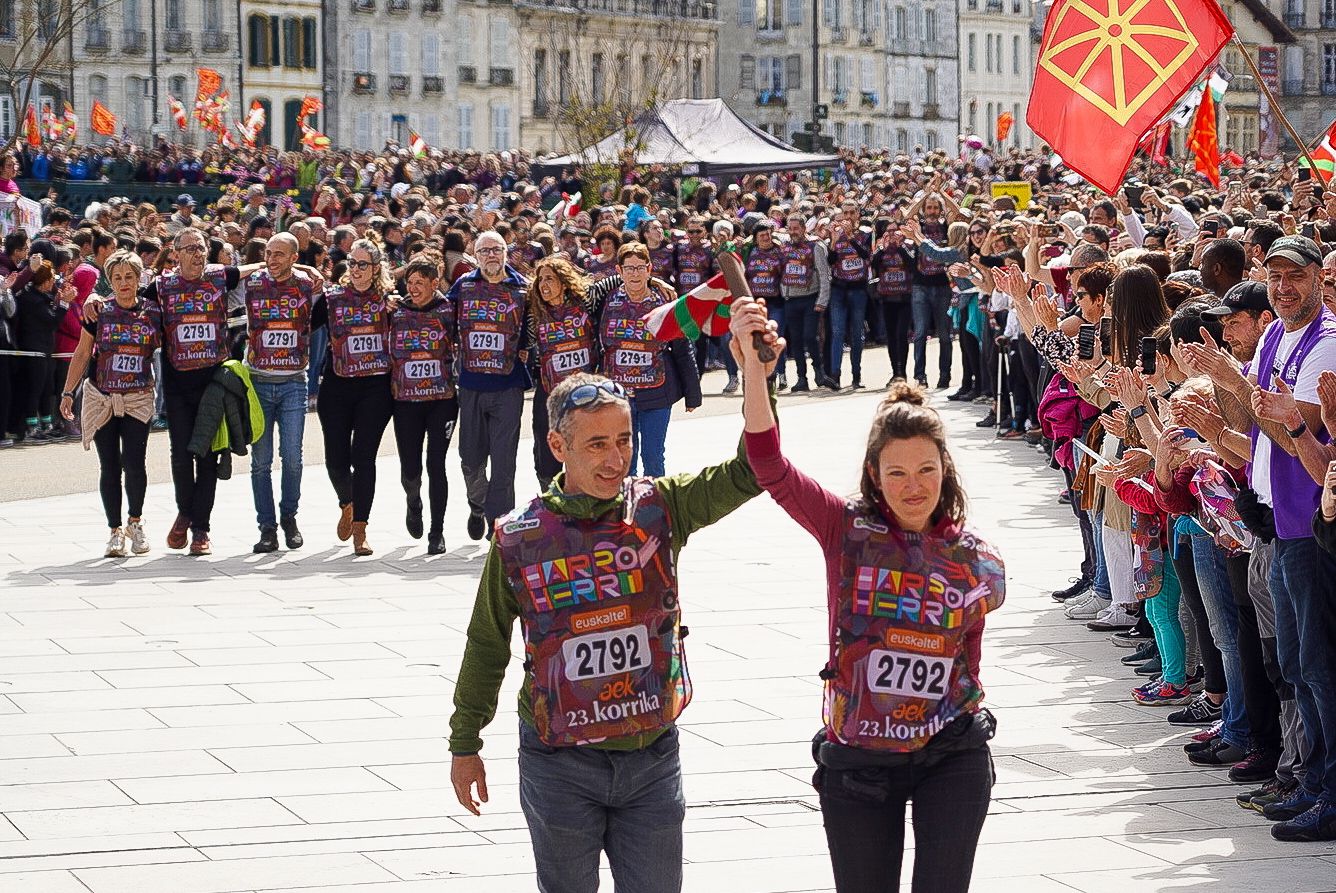
.jpg)


